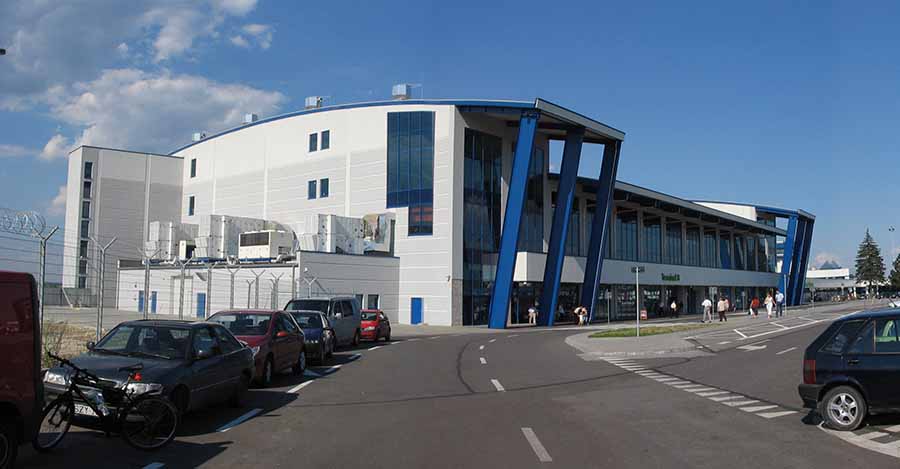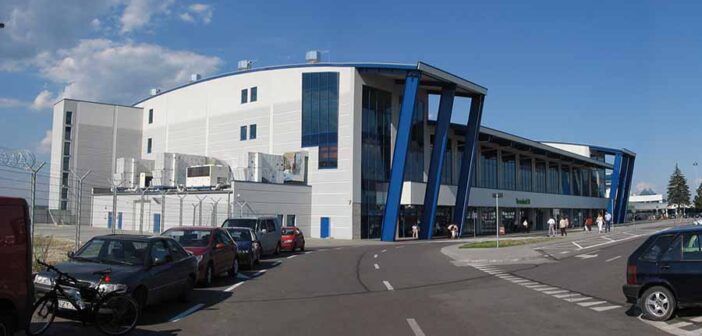
Katowice Wojciech Korfanty Airport (KTW), located in Pyrzowice, 30 kilometres north of Katowice, serves as a key gateway to Poland’s Silesian region, handling 5.6 million passengers annually. The airport’s three-terminal setup—Terminal A for non-Schengen departures, Terminal B for Schengen departures, and Terminal C for all arrivals—offers a clear and compact layout, with English signage guiding travellers through check-in, security, and boarding. The interconnected terminals ensure short walking distances, and passengers with mobility needs can access wheelchair assistance, accessible restrooms, and lifts, with support available if requested 48 hours in advance. A new car park, P5, recently added 863 spaces, bringing the total to 6,700, enhancing convenience for those driving.
Access to the airport is straightforward, with multiple transport options connecting to Katowice and nearby cities like Krakow. The AP1, AP3, and AP4 bus lines link the airport to Katowice Railway Station and other stops, with fares around 14 Zloty (£3) and a journey time of 50 minutes. Leo Express minibuses offer transfers to destinations like Ostrava, with tickets starting at 20 Zloty (£4).
Taxis, operated by Pyrzowice Airport Taxi Service, cost approximately 160 Zloty (£32) to Katowice city centre, while car rental desks, including Avis, Hertz, and Sixt, are located near the entrances of Terminals B and C. The airport is accessible via the S1 expressway, and a new railway station, 500 metres from the terminals, offers limited train services, with full connectivity to the CMK High Speed Main Line expected by June 2026.
The passenger experience is designed for efficiency, though high traffic can create challenges. Over 50 check-in counters open two hours before domestic flights and three hours before international, closing 45 minutes prior.
Security screening, known for strict procedures, averages 15 to 20 minutes but can extend to an hour during peak summer months or holiday periods. Travellers are advised to arrive early to manage potential queues. Free Wi-Fi is available in the Business Lounges, with access for economy passengers at around £25, though some report connectivity issues. Charging stations are scattered across the terminals, and baby-changing facilities are available in select restrooms. The Business Lounge in Terminal A (non-Schengen) and Terminal B (Schengen) offers snacks, drinks, and workspaces, while a free shower facility provides a place to freshen up.
Dining and retail options are practical, with around 10 eateries and shops across Terminals A and B. Landside, So! Cafe and a One Minute Store offer coffee and quick snacks, with a coffee priced at about £2. Airside, restaurants serve sandwiches and local dishes, though some travellers note high prices, with meals reaching £10. Duty-free shops in both terminals sell perfumes, alcohol, and souvenirs, while newsstands and gift shops offer flowers, jewellery, and newspapers, with a 15.5% airport discount programme available. Most outlets operate from 5 am, with some open 24 hours. A pharmacy and money exchange desks in Terminal B add convenience.
On-time performance is generally reliable, with most flights departing within 15 minutes of schedule, supported by a 3,200-metre runway and a modern Thales 420 Instrument Landing System. However, weather conditions like snow or fog, and occasional runway overruns, can cause delays, particularly in winter. Passengers should monitor flight statuses via the airport’s app or digital boards. For connections, the interconnected terminals simplify transfers, with minimum connection times of 40 minutes for domestic and 60 minutes for international flights, often through hubs like Warsaw or Frankfurt. Fast-track services, available for purchase, reduce wait times at security.
Potential delays may arise from strict security checks, which some travellers describe as overly thorough, or from high passenger volumes during peak seasons. Passport control for non-EU visitors can be slow, with waits of up to two hours reported during busy periods. Road traffic on the S1 expressway during rush hours may also affect arrivals, so extra travel time is recommended. Despite these challenges, Katowice Airport’s modern infrastructure, accessible transport links, and essential amenities make it a practical choice for travellers exploring southern Poland or connecting to Europe and beyond.
Ryanair
Ryanair operates from Terminal A, with check-in desks typically in the check-in area (desks 1–15). Passengers should verify desk assignments on airport screens. Bag drop opens 2 hours prior.
Departures are most commonly from gates 1-20 (non-Schengen; dynamic, shown on screens ~30-45 minutes before departure). Specific gates are confirmed on departure boards. Ryanair operates flights to Dublin on Tuesdays, Thursdays, Fridays, and Sundays.




